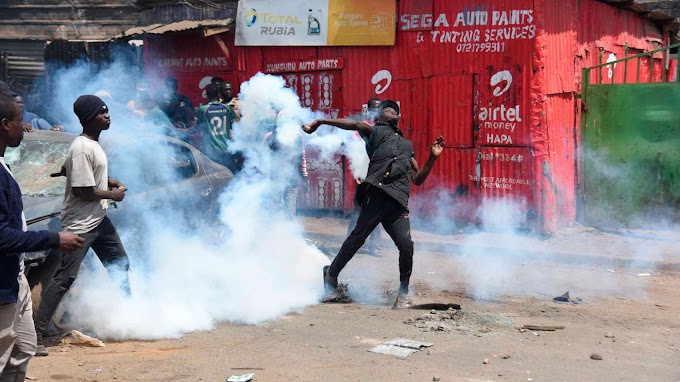In a shocking incident that has sent shockwaves through Nairobi, a hawker is now facing rape charges after allegedly assaulting his housemate's friend. This case has brought attention to the pressing issue of sexual crimes in the city and highlights the importance of enforcing the Sexual Offences Act of 2006. The accused, identified as Ben Marita Mokema, appeared in court and will face the full extent of the law for his alleged actions. This article investigates the details of the case and its implications for addressing the prevalence of sexual crimes in Nairobi.
Details of the Alleged Assault:
According to reports, the incident occurred when Mokema, a hawker, allegedly detained and raped his housemate's friend. This horrifying act of violence has sparked outrage in the community, highlighting the need for greater awareness and comprehensive action against sexual crimes. The victim's identity has been protected, as is customary in cases of sexual assault, to ensure her privacy and safety during the legal proceedings.
Legal Implications:
Mokema has been charged with rape under Section 3 (1) (a) of the Sexual Offences Act (SOA) of 2006, which clearly defines rape as a criminal offense. If found guilty, he will face severe penalties as mandated by the law. By prosecuting such cases and ensuring justice is served, the legal system aims to deter potential offenders, protect the rights of victims, and send a strong message that sexual crimes will not be tolerated.
Addressing Sexual Crimes in Nairobi:
This distressing incident sheds light on the urgent need to address and combat sexual crimes within Nairobi. While such cases are alarming, they also point to the underlying issue of gender-based violence prevalent in many societies. It is crucial for individuals, communities, and authorities to work collaboratively to create a safe environment for all residents, where sexual violence is not tolerated.
Promoting Awareness and Education:
To effectively combat sexual crimes, increasing public awareness and education is vital. Initiating comprehensive sex education programs in schools and public spaces can promote a culture of consent and respect, empowering individuals to recognize and challenge harmful behaviors. Additionally, educating both men and women on their legal rights and providing resources for survivors of sexual assault is crucial in fostering a supportive environment.
Efficient Reporting and Investigation:
Improving the reporting and investigation processes is crucial to ensure justice for survivors of sexual crimes. Encouraging victims to come forward and providing them with proper support, including access to counseling and legal aid, is essential. Authorities must also prioritize the prompt and thorough investigation of cases, ensuring that justice is achieved.
Conclusion:
The alleged assault by a hawker on his housemate's friend in Nairobi highlights the urgent need to address sexual crimes in the city. It is imperative that the legal system operates efficiently, sending a clear message that such offenses will not be tolerated. Concurrently, efforts to educate the public, promote awareness, and provide support for survivors must be strengthened. By collectively working towards a society that upholds the rights and safety of all individuals, Nairobi can strive towards a future free from sexual violence.

















